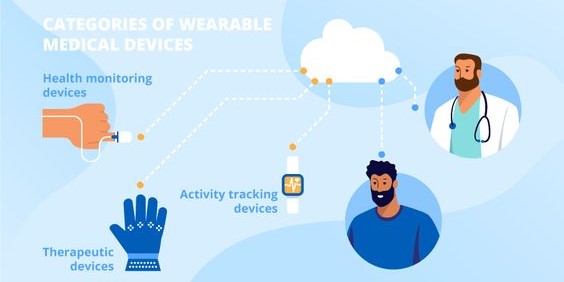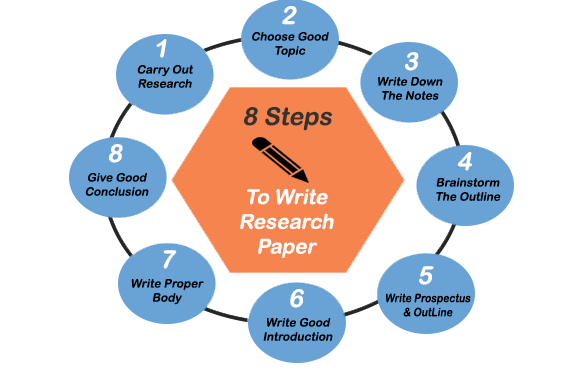
Table of Contents
The field of nursing education is rapidly evolving, embracing the transformative power of technology to enhance teaching, learning, and clinical practice. This dynamic shift presents a rich landscape for research, offering countless opportunities to explore the impact of technology in nursing education, its benefits, challenges, and future possibilities.
This article provides a comprehensive guide to writing a top-notch research paper on this crucial topic, empowering you to make a meaningful contribution to the field.
Steps for Writing a Research Paper on the Role of Technology in Nursing
1. Choosing a Compelling Research Question:
The first step in crafting a successful research paper is identifying a focused and relevant research question. To do this, consider the vast spectrum of ways technology is influencing nursing education. Here are some potential avenues to explore:
- Impact of specific technologies: Focus on a particular technology, such as virtual reality simulations, telehealth platforms, or learning management systems, and analyze its impact on student learning outcomes, clinical skills acquisition, or faculty workload.
- Technology integration strategies: Investigate different approaches to integrating technology into nursing curricula, such as blended learning, flipped classrooms, or online learning platforms. Compare and contrast these methods, examining their effectiveness and student satisfaction levels.
- Bridging the digital divide: Explore the challenges of equitable access to technology in nursing education, considering factors like socioeconomic status, geographical location, and digital literacy. Examine strategies to ensure all students have equal opportunities to benefit from technology in nursing education.
- Technology’s impact on nursing practice: Research how technology is transforming nursing practice and how nursing education programs are preparing students to adapt to these changes. Explore the use of wearable technology, data analytics, or mobile health applications in patient care.
- Ethical considerations of technology: Delve into the ethical implications of using technology in nursing education, such as privacy concerns, data security, and the potential for bias in artificial intelligence applications.
2. Conducting a Thorough Literature Review:
Once you have a strong research question, a comprehensive literature review is essential. A literature review helps you navigate the complex landscape of existing research, providing a roadmap to understand where you are and where you need to go next. This step involves gathering and analyzing existing research on the topic of technology in nursing education. You should carefully gather evidence from various sources to build a complete picture.
The following are some pointers for crafting the literature review.
- Identify relevant keywords: Use relevant keywords like “technology in nursing education,” “virtual reality in nursing,” “e-learning in nursing,” “simulation technology in nursing,” “online learning in nursing,” “mobile health in nursing,” “telehealth in nursing,” “data analytics in nursing,” “nursing education technology,” and “digital literacy in nursing” to conduct your search.
- Explore reputable databases: Utilize databases such as PubMed, Nursing Papers, CINAHL, ERIC, and Scopus to access peer-reviewed articles, research reports, and other relevant publications.

- Synthesize findings: Organize your findings and critically evaluate the existing literature. Identify gaps in the current research, areas of controversy, and emerging trends in the use of technology in nursing education.
3. Selecting a Research Methodology:
The choice of research methodology depends on your research question and the specific aspects of technology in nursing education you aim to study. While there are various kinds of research methodologies, the methodologies that could apply to your paper include:
- Quantitative research: Employing surveys, questionnaires, and statistical analysis to quantify and measure the impact of technology on various aspects of nursing education.
- Qualitative research: Using interviews, focus groups, and observations to explore the lived experiences and perspectives of students, faculty, and practitioners regarding the use of technology in nursing education.
- Mixed methods research: Combining quantitative and qualitative approaches to provide a comprehensive understanding of the complex interplay between technology and nursing education.
You can either choose one methodology or combine two methodologies, depending on the direction of your research paper.
4. Gathering and Analyzing Data:
The next step involves collecting and analyzing data based on your chosen research methodology. This could involve administering surveys, conducting interviews, observing classroom interactions, or analyzing student performance data.
- Ensure data integrity: Employ rigorous data collection methods to ensure accuracy, reliability, and validity of the data.
- Utilize appropriate statistical tools: Utilize statistical software like SPSS or R to analyze quantitative data, identify trends, and test hypotheses.
- Apply qualitative analysis techniques: For qualitative data, use techniques like thematic analysis, content analysis, or grounded theory to extract meaningful insights and patterns.
5. Writing a Clear and Concise Manuscript:
Writing a compelling research paper involves structuring the content logically and presenting your findings in a clear and concise manner. Follow the standard structure of a research paper:

- Introduction: Clearly state your research question, provide background information on the topic of technology in nursing education, and outline the significance of your study.
- Literature Review: Summarize the existing literature on the topic, highlighting key findings, gaps in knowledge, and the rationale for your research.
- Methodology: Describe your research design, sample size, data collection methods, and data analysis techniques in detail.
- Results: Present your findings objectively, using tables, figures, and graphs to support your interpretations.
- Discussion: Interpret your results in the context of existing literature, highlighting implications for practice and future research.
- Conclusion: Summarize the main findings, reiterate the significance of your study, and suggest directions for future research.
6. Ensuring Rigor and Ethical Considerations:
A top-notch research paper on technology in nursing education must prioritize rigor and ethical considerations.
- Transparency and replicability: Clearly document your research methods to allow for replication and verification of your findings.
- Ethical review: Obtain institutional review board (IRB) approval for your study, ensuring that data collection and analysis adhere to ethical guidelines.
- Data security and privacy: Safeguard participant data, anonymizing it to protect confidentiality and comply with privacy regulations.
- Bias mitigation: Be mindful of potential biases in data collection and analysis, employing strategies to minimize their influence on your findings.
7. Engaging with Your Audience:
Once your research paper is complete, consider ways to engage with your audience and contribute to the broader conversation on technology in nursing education.
- Submit to reputable journals: Choose relevant nursing education journals with a high impact factor and a strong focus on technology in nursing.
- Present your findings at conferences: Share your research with the broader nursing education community by presenting your findings at conferences and workshops.
- Disseminate your work through social media: Utilize social media platforms to engage with other researchers, educators, and practitioners, raising awareness about your findings and fostering dialogue on technology in nursing education.
- Collaborate with practitioners: Partner with nursing educators and practitioners to implement your findings in real-world settings, bridging the gap between research and practice.
Writing a top-notch research paper on the role of technology in nursing education requires a thoughtful approach, rigorous methodology, and a commitment to ethical principles. By addressing a compelling research question, conducting a thorough literature review, selecting the appropriate research methodology, and disseminating your findings effectively, you can contribute to the growing body of knowledge on this critical topic. As technology continues to reshape the landscape of nursing education, research plays a vital role in ensuring its effective, equitable, and ethical integration into nursing practice.
Key Takeaways:
- Choose a research question that addresses a specific aspect of technology in nursing education.
- Conduct a comprehensive literature review to identify gaps in knowledge and establish the rationale for your study.
- Select a research methodology that aligns with your research question and aims.
- Gather and analyze data rigorously, ensuring accuracy, reliability, and validity.
- Write a clear, concise, and well-structured manuscript that effectively communicates your findings.
- Ensure your research adheres to ethical guidelines and prioritizes data security and privacy.
- Disseminate your findings through peer-reviewed publications, conference presentations, and social media engagement.
Topic Examples for Research Papers about Technology in Nursing Education
General Topics:
- The Impact of Telehealth on Patient Outcomes in Nursing: Explore the effectiveness of telehealth in providing care to patients, focusing on specific outcomes like patient satisfaction, medication adherence, and readmission rates.
- The Use of Artificial Intelligence (AI) in Nursing: Analyze the potential and limitations of AI in nursing, including tasks like patient monitoring, diagnosis support, and personalized care plans.
- The Integration of Wearable Technology in Nursing: Examine how wearable devices can enhance patient monitoring, empower patients to manage their health, and improve communication between nurses and patients.

Specific Focus Areas:
- The Role of Mobile Health Apps in Patient Education and Self-Management: Investigate how mobile health apps can support patient education, medication reminders, symptom tracking, and overall health management.
- The Ethical Implications of Using Robotics in Nursing Care: Analyze the ethical considerations surrounding the use of robots in nursing, including issues of patient autonomy, privacy, and potential job displacement.
- The Impact of Electronic Health Records (EHRs) on Nurse Workflow and Patient Safety: Evaluate the advantages and challenges of EHRs in nursing practice, considering factors like data entry time, system usability, and potential for errors.
- The Use of Virtual Reality (VR) in Nursing Education and Training: Explore how VR technology can enhance nursing education by providing immersive simulations for skills training, patient interaction, and critical thinking development.
Emerging Trends:
- The Future of Nursing Technology: Exploring Emerging Trends: Discuss promising technologies on the horizon, such as blockchain for secure data sharing, biometric monitoring, and augmented reality for surgical procedures.
Common Pitfalls to Avoid in Nursing Research Paper Writing
Writing a research paper on the role of technology in nursing education requires careful consideration to avoid common pitfalls that can undermine the quality and impact of your work. Here are some key areas to focus on:
1. Lack of Clear Focus:
- Defining Your Scope: A broad topic like the role of technology in nursing education can easily become overwhelming. Narrow your focus by specifying a particular technology, educational outcome, or nursing specialization. For example, instead of a general overview, you could focus on the impact of simulation software on critical thinking skills in undergraduate nursing students.
- Defining Your Audience: Who is your intended audience? Are you targeting educators, policymakers, or practicing nurses? Tailor your writing style and level of detail accordingly.
2. Biased Information and Lack of Critical Analysis:
- Objectivity is Key: When exploring the impact of technology in nursing education, it’s crucial to present evidence from multiple perspectives. Avoid overly promotional language about specific technologies or platforms, and be wary of relying on vendor-sponsored materials.
- Critical Evaluation: Don’t simply describe the use of technology in nursing education. Analyze the strengths and weaknesses, considering factors like cost, accessibility, effectiveness, and potential ethical implications.
3. Overreliance on Anecdotal Evidence:
- Quantitative and Qualitative Research: While personal experiences can be valuable, they should be combined with solid research findings. Use quantitative data to assess the impact of technology in nursing education on learning outcomes, and qualitative data to understand student and faculty perspectives.
4. Ignoring Practical Considerations:
- Implementation Challenges: A paper that only focuses on the theoretical benefits of technology in nursing education can be unrealistic. Acknowledge the practical barriers to successful integration, such as cost, training needs, technical infrastructure, and resistance to change.
- Sustainability and Scalability: Consider the long-term sustainability of your proposed solutions. Will they be affordable and accessible to diverse institutions and students?
5. Failure to Engage with Current Research:
- Literature Review: Thoroughly review the existing literature on technology in nursing education to identify key trends, emerging technologies, and unanswered research questions.
- Building on Existing Knowledge: Your research should contribute to the ongoing conversation and provide new insights or perspectives.
Addressing these potential pitfalls will enable you to ensure that your research paper on technology in nursing education is well-grounded, informative, and relevant to the field.

By following these steps and actively engaging with the field, you can contribute to the advancement of knowledge on the role of technology in nursing education, paving the way for a more innovative and effective future for nursing practice.
Get Professional Research Paper Writing Help
At PhD Nurse Writer, we offer professional research paper writing help for undergraduate, Degree, Master’s and Doctoral nursing courses. Our service covers topic suggestion, research paper writing, proof reading and editing, and plagiarism removal. Besides, our writers can also help you with writing nursing essays, case studies and dissertations.





